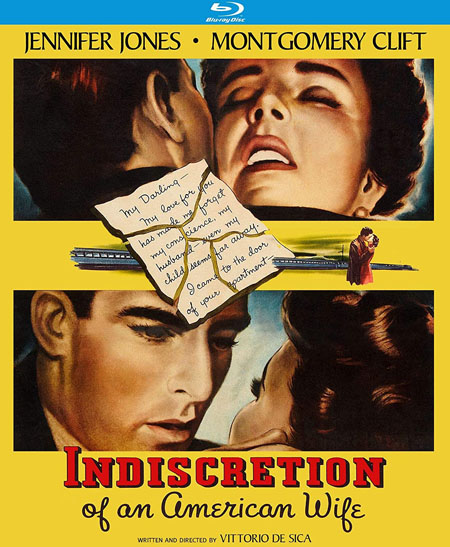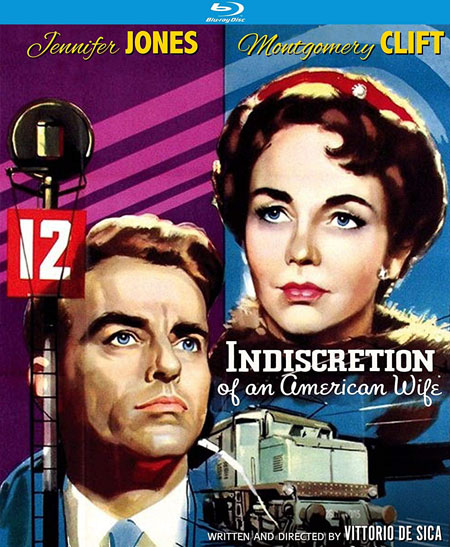
“DE
SICA VS. SELZNICK = 2 MOVIES IN 1â€
By
Raymond Benson
Here’s
an interesting lesson in filmmaking. Students of the art might learn something
by watching the two different cuts of this motion picture to see what happens when
a movie is edited down—especially when the original was made by a bona fide artist
as opposed to a slick Hollywood producer who, albeit successful, might not
know everything.
David
O. Selznick was a powerhouse producer and head of his own personal studio (he
had, after all, produced Gone with the Wind, Rebecca, Spellbound,
and many other Hollywood classics). Vittorio De Sica was the purveyor of
Italian Neo-realism (along with Roberto Rossellini) and was responsible for
such art house masterpieces as Shoeshine and Bicycle Thieves (aka
The Bicycle Thief). They teamed up in the early 1950s to make a movie
together. Selznick would produce—and the film would star his then-wife,
Jennifer Jones—and De Sica would direct.
It
did not go well. Reportedly, Selznick and De Sica constantly clashed during
production. Jones’ co-star, Montgomery Clift, allegedly called it one of the
worst experiences of his career.
Terminal
Station,
the original De Sica film, was first released in 1953 in Italy (as Stazione
Termini) in Italian with Jones and Clift dubbed. Another English version
with the two actors’ real voices was also made, and all the Italians were
dubbed in English. This cut of the film is around 90 minutes in length and has
circulated internationally. Based on a short story by Cesare Zavattini, the
script was adapted by Luigi Chiarini and Giorgio Prosperi—but Selznick brought
in a couple of Hollywood writers for the English dialogue, including Truman
Capote, who got screen credit with the two Italians.
When
Selznick saw the completed Terminal Station, he hated it. Against De
Sica’s wishes, Selznick re-cut the film—throwing out nearly 25 minutes—and
adding a silly 8-minute prologue “short†to round out the feature length from
64 minutes to 72. Retitled Indiscretion of an American Wife, the picture
was released in America in 1954, and in England as Indiscretion. Selznick’s
name does not appear anywhere in the credits (except in the tiny copyright line
beneath the title card).
The
general contemporary consensus from U.S. critics and audiences alike was that Indiscretion
of an American Wife was terrible. It quickly disappeared, despite an Oscar
nomination for Best Costumes (black and white) and the creation of a couple of
standard songs in the prologue (“Autumn in Rome†and “Indiscretion,†both sung
by newcomer Patti Page, making her debut appearance in a movie).
HOWEVER—Vittorio
De Sica’s original Terminal Station is absolutely wonderful! It is a
heart-wrenching, emotional, and yet simple tale of a married American woman,
Mary (Jones) who has just arrived at Rome’s famous Stazioni Termini to catch a
train to go back to Paris and then to America. She had been visiting her
sister’s family in the city, but she had fallen in love and had an affair with
an Italian American, Giovanni (Clift). Guilt-ridden, but also convinced she is
in a loveless marriage back home and has finally found her “beau ideal,†Mary
is conflicted about returning to her husband and daughter. The entire story
takes place in real time as Giovanni attempts to persuade Mary to stay before
the inevitable train departure.

De
Sica’s original cut is masterful in how it takes this little “short story†and
places what is significant torment shared by the two lovers amidst the slice of
life around them. As with most of the director’s films, we see characters from
all types and classes, each one with their own little stories that are subtly
told. Who is the guy trying to pick up every woman he sees? What will happen to
the poor family with the ill pregnant mother and three hungry boys who have no
money to get to the hospital? The picture is full little vignettes like this,
and they all add to the point of the movie—that we all have our own little crises
in a much larger canvas.
Selznick
ripped out most of the exposition and cuts away from many of these bits, shortening
them to meaningless fodder. The prologue with Patti Page was shot in Hollywood,
with Page in New York wistfully “remembering†her own affair in Italy as she
sings the two songs in her living room, gazing out the window at the city and
picking on the piano keyboard (the prologue was directed by William Cameron
Menzies). While the songs—based on the original Italian instrumental score by
Alessandro Cicognini—are perfectly fine, this whole thing was unnecessary. And
while most of the drama between Mary and Giovanni is still there, its brevity
lessens the impact.
That
said, Jennifer Jones is outstanding in the role. Clift is good, but his part is
more reactionary to the war going on in Jones’ character. Also appearing in the
cast is a young Richard Beymer (credited as Dick Beymer) of West Side Story and
Twin Peaks fame, as Mary’s nephew in Rome. He has several important
scenes in the station with his aunt.
Kino
Lorber’s excellent Blu-ray release presents both versions of the film.
Unfortunately, it is Indiscretion of an American Wife that receives the
best video and aural treatment. It is a 4K restoration and looks spectacular,
as does the “Autumn in Rome†prologue, which is tacked on. Terminal Station was
restored in 2K from the best surviving film elements, resulting in a not quite
as sharp picture—but it’s good enough, because it’s the better movie! You can
watch Terminal Station in English or in Italian with English subtitles
(but remember, you get Jones’ and Clift’s real voices in the English version).
The only supplements are theatrical trailers for this and other Kino Lorber
releases.
Underrated
and mostly forgotten, Terminal Station is a lovely, romantic date night
movie, and Indiscretion of an American Wife is… what it is. As a total
package, though, this release is a winner.
CLICK HERE TO ORDER FROM AMAZON
